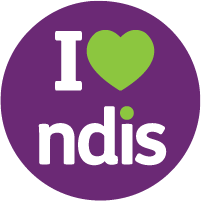There are numerous Benefits of Regular Exercise for both physical and mental health. Maximizing Your Potential to gain the Benefits of Regular Exercise includes weight management, cardiovascular health, muscle strength & stability, bone strength, improved mood, energy and helping with disease prevention.
What is an Exercise Physiologist (EP)
An exercise physiologist (EP) is a healthcare professional, who has undergone 4 years at university for a Bachelor’s Degree. The goal of an exercise physiologist is to help a range of people start moving in ways they might not have been able to due to specific conditions or injuries. Talk to our team today to talk about the Benefits of Regular Exercise
An EP typically works with individuals who may have specific health concerns, fitness goals, or medical conditions. We are qualified to see individuals with:
- Chronic Conditions
- Cardiovascular (Heart) Conditions
- Pulmonary (Lung) Conditions
- Weight management
- Metabolic Conditions (Diabetes & Osteoporosis)
You might wonder how Exercise Physiology differs from Physiotherapy. A physio is someone who can assist with the initial or acute phase of an injury through diagnosis and manual or passive treatments. Whereas an EP solely focuses on active treatments (exercise) with the long term goal of you being able to effectively self-manage your own conditions.
What to expect during a session?
- Initial Assessment
The first thing you could expect in a session would be an initial assessment. This is very important, and this would include not only a physical assessment of how you move, but an in depth personal / medical history.
- Providing Education
Education would be a crucial part of a session, where the EP would start to explain how specific exercises would be beneficial to your situation. This would be followed by an exercise program which would be safe, effective and appropriate for the person.
- Individualized Programming
An individualized program from an Exercise Physiologist (EP) is a personalized exercise plan tailored to meet the unique needs, goals, and abilities of an individual. The overall goal is to help an individual’s overall health and wellbeing, through the use of exercise.
- Follow-Up / Monitoring
Based on your progress, the EP may modify your exercise program to ensure continued progression and address any new or changed goals you have.
Types of exercises
There are 3 types of main exercises to think about. Depending on your health and goals, it will depend on which exercises are recommended for you!
The below types of activities will give you the Benefits of Regular Exercise
| Cardio | Strength | Stretching |
|
|
|
























